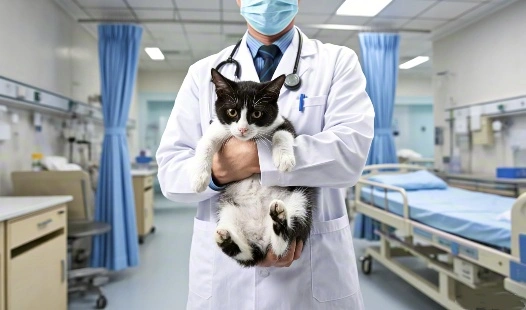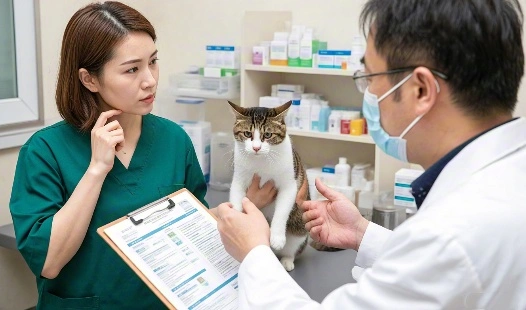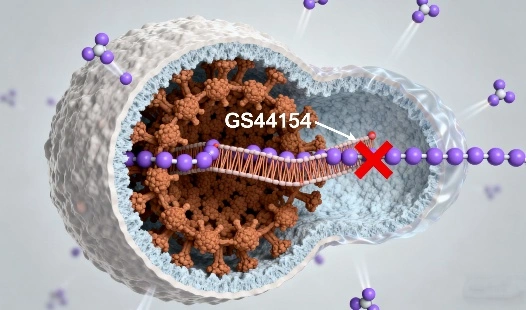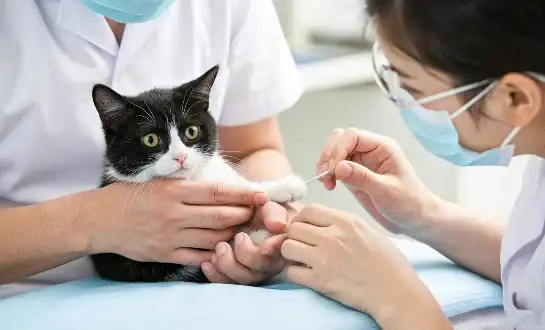How often are blood tests performed during FIP treatment?
Initial blood work before starting GS-441524
Feline Infectious Peritonitis (FIP) is a devastating disease that affects cats worldwide. With the advent of GS-441524 drug treatment, many cats are now finding hope for recovery. However, monitoring the progress of FIP treatment is crucial, and blood tests play a vital role in this process. This article will delve into the frequency and importance of blood tests during FIP treatment, helping cat owners and veterinarians understand this critical aspect of care.
|
|
|
Initial blood work before starting GS-441524
Establishing baseline values
Before initiating FIP treatment with GS-441524 drug, it's essential to perform comprehensive blood work. This initial testing establishes baseline values for various parameters, allowing veterinarians to track changes throughout the treatment course.
Key blood parameters to assess
The initial blood work typically includes:
1. Complete Blood Count (CBC): A CBC is a fundamental test that measures the number and types of cells in the blood, including red blood cells, white blood cells, and platelets. In cats with FIP, the CBC may show anemia (a low red blood cell count), leukocytosis (an elevated white blood cell count), or thrombocytopenia (low platelet count). These abnormalities reflect the body's inflammatory response to the viral infection and can indicate the severity of the disease.
2. Serum Chemistry Panel: The serum chemistry panel evaluates various biochemical markers in the blood, including proteins, electrolytes, and enzymes. In FIP cases, the test may reveal elevated liver enzymes (indicating liver involvement) and increased globulin levels (a type of protein often elevated in response to inflammation). Abnormal results from this panel can help identify organ dysfunction or damage caused by the virus.
3. Protein Electrophoresis: This test separates different proteins in the blood to assess their composition. For FIP diagnosis, increased levels of globulins are typically observed, particularly the alpha-1 acid glycoprotein (AGP) and immunoglobulins. These proteins are often elevated due to the inflammation and immune response triggered by the virus. Protein electrophoresis can help differentiate FIP from other diseases with similar symptoms.
4. Liver and Kidney Function Tests: FIP can affect multiple organs, including the liver and kidneys. Blood tests assessing liver function (such as ALT and AST levels) and kidney function (such as creatinine and BUN) are important for evaluating whether these organs have been impacted by the disease. Elevated levels of liver enzymes or abnormal kidney markers can indicate organ damage caused by the viral infection, making these tests critical for staging the disease and monitoring treatment progress.
These tests provide valuable information about the cat's overall health status and the severity of FIP-related inflammation.
Frequency of monitoring during FIP therapy
|
|
|
|
Regular blood test schedule
During FIP treatment, blood tests are typically performed at regular intervals. The frequency may vary depending on the individual case and the veterinarian's discretion, but a common schedule is:
- Every 1-2 weeks for the first month of treatment
- Every 2-4 weeks for the remainder of the treatment period
Factors influencing test frequency
Several factors can influence how often blood tests are performed during FIP treatment:
- Severity of initial symptoms
- Response to treatment
- Presence of complications
- Overall health of the cat
Cats with more severe cases or those experiencing complications may require more frequent monitoring.
Interpreting blood test results post-treatment
 |
 |
 |
 |
Key markers of improvement
As FIP treatment progresses, veterinarians look for specific improvements in blood test results, including:
1. Normalization of Red and White Blood Cell Counts: A key indicator of recovery is the normalization of red blood cells (RBC) and white blood cells (WBC). In FIP cases, the CBC often shows elevated white blood cells due to inflammation. As the treatment works, WBC levels should decrease to normal ranges, indicating a reduction in the infection's inflammatory effects.
2. Reduction in Globulin Levels: Elevated globulin levels are often seen in FIP due to the immune response triggered by the virus. Over the course of treatment, globulin levels should gradually return to normal. A decrease in globulin levels suggests that the inflammation is subsiding and the immune system is regaining its normal function.
3. Improvement in Albumin-to-Globulin Ratio: The albumin-to-globulin ratio is a critical marker in evaluating the severity of inflammation and protein imbalance caused by FIP. A healthy cat typically has a higher albumin-to-globulin ratio. As the cat responds to treatment, the ratio should improve, indicating that the protein imbalance is correcting and the body is recovering from the viral infection.
4. Stabilization of Liver and Kidney Function Parameters: Liver enzymes (such as ALT and AST) and kidney markers (like creatinine and BUN) should stabilize during treatment. A return to normal levels or a significant reduction in elevated markers is a positive sign that these organs are no longer under strain and that the cat’s health is improving.
Long-term monitoring
Even after the completion of FIP treatment, periodic blood tests are recommended to ensure sustained remission. These follow-up tests may be conducted:
- 1 month after treatment completion
- 3 months post-treatment
- 6 months post-treatment
- Annually thereafter
Conclusion
Regular blood testing is a crucial component of successful FIP treatment with GS-441524. These tests provide valuable insights into the cat's response to treatment and overall health status. By adhering to a consistent monitoring schedule, veterinarians can make informed decisions about dosage adjustments and treatment duration, ultimately improving the chances of a positive outcome for cats battling FIP.
FAQ
Q: Can blood tests predict the success of FIP treatment?
A: While blood tests cannot definitively predict treatment success, they provide valuable indicators of a cat's response to therapy. Consistent improvement in key parameters often correlates with a positive outcome.
Q: Are there any risks associated with frequent blood tests during FIP treatment?
A: The risks of frequent blood tests are minimal. However, some cats may experience stress or mild discomfort during blood collection. Your veterinarian will take steps to minimize any potential risks.
Q: How long does it take to see improvements in blood test results during FIP treatment?
A: The timeline for improvement can vary between cats. Some may show positive changes within a few weeks, while others may take longer. Consistent monitoring is key to tracking progress over time.
Effective FIP Treatment – Order Now
At BLOOM TECH, we understand the critical role that high-quality pharmaceuticals play in the successful treatment of FIP. As a leading GS-441524 drug manufacturer, supplier, and factory, we are committed to providing veterinarians and pet owners with premium-grade products to support FIP treatment.
Our GS-441524 is manufactured under strict quality control measures, ensuring consistency and efficacy in every batch. With our state-of-the-art facilities and experienced team, we offer:
- Pharmaceutical-grade GS-441524 with high purity (>99%)
- Comprehensive quality assurance documentation
- Flexible packaging options to meet various clinical needs
- Reliable and timely global shipping
Don't let FIP rob your feline patients of a chance at recovery. Partner with BLOOM TECH for a dependable supply of top-quality GS-441524. Contact our dedicated team today at Sales@bloomtechz.com to learn more about our products and how we can support your FIP treatment protocols.
References
- Pedersen, N.C., et al. (2019). Efficacy and safety of the nucleoside analog GS-441524 for treatment of cats with naturally occurring feline infectious peritonitis. Journal of Feline Medicine and Surgery, 21(4), 271-281.
- Addie, D.D., et al. (2020). Feline infectious peritonitis. ABCD guidelines on prevention and management. Journal of Feline Medicine and Surgery, 22(11), 1047-1068.
- Barker, E.N., et al. (2020). Clinical use of a novel antiviral compound (GS-441524) for the treatment of feline infectious peritonitis. Journal of Veterinary Internal Medicine, 34(1), 192-197.
- Kim, Y., et al. (2020). Reversal of the progression of fatal coronavirus infection in cats by a broad-spectrum coronavirus protease inhibitor. PLoS Pathogens, 16(3), e1008370.

Echo
9 years of experience in chemical articles; Doctoral degree; Organic Chemistry major; R&D-4 Dept; Technology support; R&D engineer
Anticipating your Business & Technology support inquiry
Please send us the products that interest you, and we will provide you with one-on-one service
Recommended Blog

How to Spot Early FIP Symptoms and When to Start GS-441524?
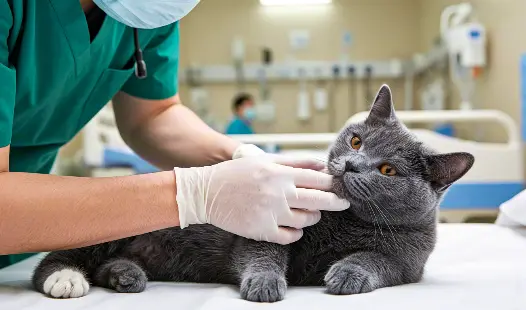
How to Create a GS-441524 Treatment Plan After an FIP Diagnosis?
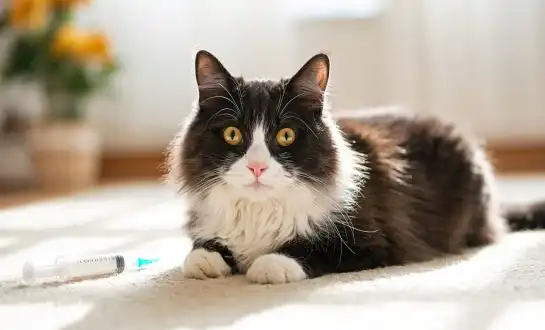
How to Handle Painful GS-441524 Injections: 5 Tips to Ease Your Cat's Stress
_副本_1757913193778.webp)
A Life-Saving Guide for FIP Cats: Your Complete GS-441524 Handbook

A Step-by-Step Guide to Giving GS-441524 Injections to Your Cat at Home







